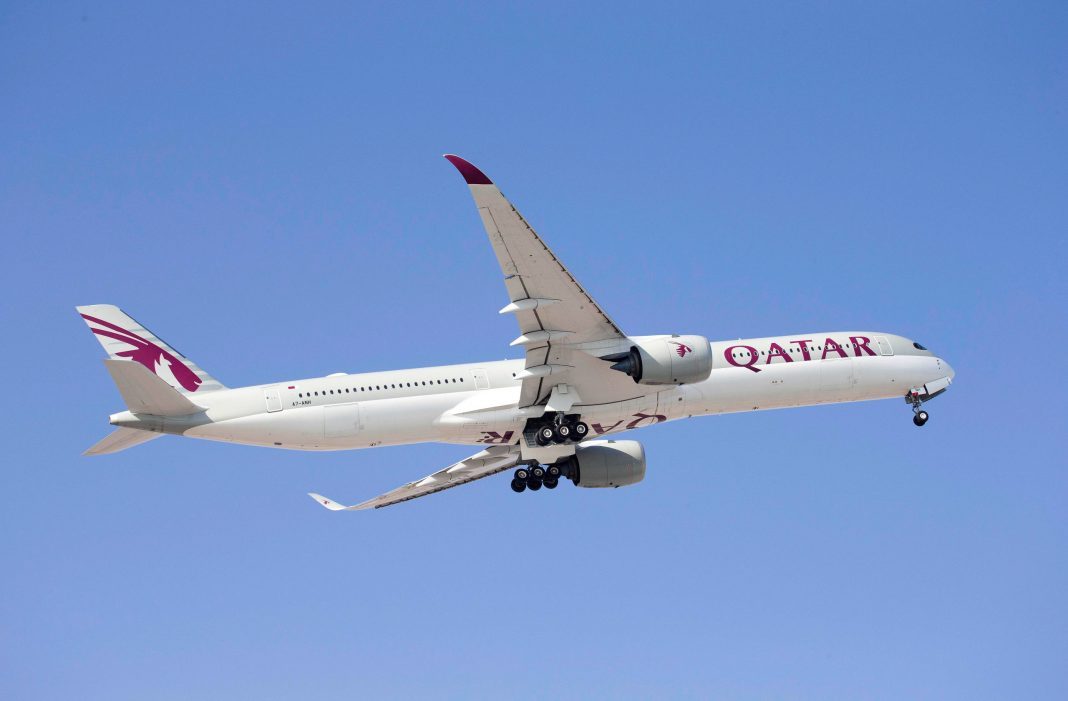Melbourne Airport has called for the government to make it easier for international airlines to fly to Australia, reports the Sydney Herald.
The chief of Melbourne Airport has supported calls for an open skies agreement that would make it easier for international airlines to fly to Australia amid ongoing tensions sparked by the government’s decision to reject more Qatar Airways flights.
“More international competition would improve outcomes for passengers and create a lower-fare environment, as well as enhanced service and improved reliability,” said Lorie Argus, Chief executive of Melbourne Airport.
An open skies approach would allow airlines to freely fly international routes and compete openly with each other for passengers, breaking down regulatory barriers and eliminating government involvement in airline decision-making.
This tone of collaboration is in sharp contrast with comments made last week by the Australian transport minister who categorically rejected Qatar’s plans to expand its flights into the country.
The Qatari airline is limited to operating 28 weekly services to Australia’s major airports. This allows once-a-day flights to the four major airports in Australia: Melbourne, Sydney, Brisbane, and Perth.
Despite widespread support in the tourism industry, plans to increase this coverage by 21 additional flights were rejected by the Australian government, citing competing “national interest” for its local carrier, Qantas.
A major loophole
However, the current bilateral agreements do not prohibit Qatar Airways from flying to additional non-major destinations. This means that Qatar Airways can add local flights which have stopovers to the major cities adding to the 28 limit.
Passengers used to have one flight option per city per day in the major four airports.
In November 2022, Qatar Airways introduced a second daily flight between Doha and Melbourne, with Adelaide registered as its destination and departure port in Australia. The airline also operates a separate direct flight between Doha and Adelaide for a similar price.
Since local laws prohibit the airline from selling tickets between Melbourne and Adelaide, it carries near-empty flights for the leg between the two cities, a report by the Guardian claimed.
Ghost flights are no secret in the aviation industry, and the practice of flying under 10% of total capacity has been widespread, especially during the coronavirus pandemic. This was either to supplement cargo planes, undergo humanitarian missions, or in some cases, continue having airport slots and meet contractual obligations.
“Despite poor demand, Airlines must operate these flights to continue securing takeoff and landing rights at hubs and major airports,” the Australian Ministry of Transport said.
What the numbers show
According to the Guardian report, QR988, the flight number for Doha to Adelaide, arrives in Melbourne at 11:30 and holds a six-hour stopover before embarking to Adelaide. Average passengers on the 352 seating craft are in the single digit after the overnight layover.
QR989, the flight number for Adelaide to Doha, has more promising numbers. It only has a one-and-a-half-hour layover and averages between 20 and 35 passengers on its trip to Melbourne.
Both flights and layovers are scheduled for late nights and consistently maintain low passenger count leading some analysts to argue that they are primarily made to serve Melbourne.
Qatar Airways previously ran a second daily service between Doha and Sydney by extending the final port to Canberra and using the same loophole.
Qatar Airways was reached for further comments but could not respond in time.
Australian government reacts
“The whole purpose is to get to Melbourne … I mean, they weren’t even selling tickets [to Adelaide] for the first few weeks,” one industry source told the Guardian.
In response, Australia’s Department of Infrastructure and Transport placed a condition on the timetable approval “for these flights on this route that they must be available for sale for passengers and cargo arriving and departing from Adelaide,” a spokesperson for the transport minister, Catherine King, said.
By citing “national interest,” the Australian Transport Ministry’s decision to block Qatar Airways may be a protectionist measure for Qantas, which along with other global airlines, remains constrained from increasing international flight capacity to Australia at a time of stubbornly high airfares and record operator profits.
Others – including Australian women suing Qatar Airways for damages over forced invasive bodily examinations were opposed to the greater air rights for the airline.
However, Australia’s transport minister has rebuffed allegations that the decision to deny a Qatar Airways request to increase flights to the country was influenced by the incident involving the detention and forced examinations of Australian women at Hamad International Airport.
A loss for Australia
Meanwhile, a report from SimpleFlying indicates that blocking Qatar’s bid for extra flights would cost between $540 million and $788 million per annum in incremental economic activity. The figure is reportedly based on approximately 50% of seats sold to travellers overseas.
The estimate is made based on possible tourism revenue that could be generated by having a high-profile brand flyover. And yet, the Australian government stands firm in its decisions.
“We only sign up to agreements that benefit our national interest, in all of its broad complexity, and that includes ensuring that we have an aviation sector, through the recovery, that employs Australian workers,” told Catherin King, Transport Minister of Australia to Travel Weekly.







